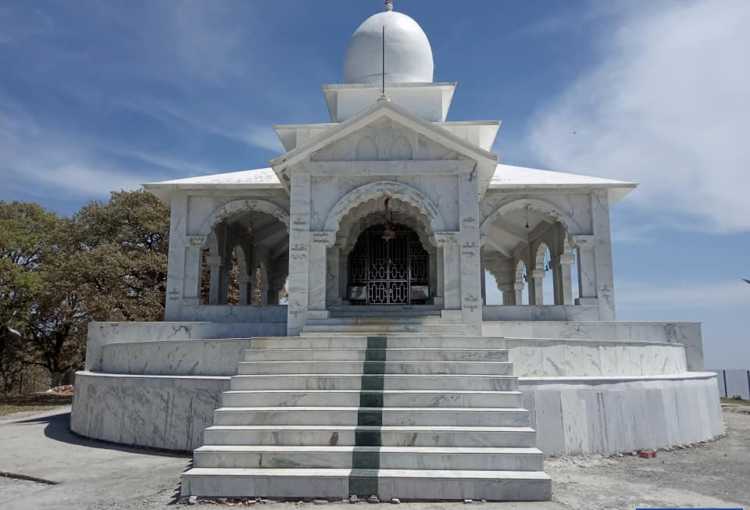Stamp: Sikh Temple, Sikh Road Kampala (Uganda 2014)
Sikh Temple, Sikh Road Kampala (Uganda 2014)
17 January (Uganda ) within release Sikh centenary celebrations in Uganda goes into circulation Stamp Sikh Temple, Sikh Road Kampala face value 3400 Ugandan shilling
| Stamp Sikh Temple, Sikh Road Kampala in catalogues | |
|---|---|
| Colnect codes: | Col:UG 2014-04 |
Stamp is horizontal format.
Also in the issue Sikh centenary celebrations in Uganda:
- Stamp - Sikh Emblem Kanda face value 700;
- Stamp - Sikh standard - Nishan Sahib face value 1100;
- Stamp - Golden Temple Amritsar face value 2700;
- Stamp - Sikh Temple, Sikh Road Kampala face value 3400;
Stamp Sikh Temple, Sikh Road Kampala it reflects the thematic directions:
Religion is any cultural system of designated behaviors and practices, world views, texts, sanctified places, ethics, or organizations, that relate humanity to the supernatural or transcendental. Religions relate humanity to what anthropologist Clifford Geertz has referred to as a cosmic "order of existence". Different religions may or may not contain various elements ranging from the "divine", "sacred things", "faith", a "supernatural being or supernatural beings" or "some sort of ultimacy and transcendence that will provide norms and power for the rest of life". Religious practices may include rituals, sermons, commemoration or veneration (of deities), sacrifices, festivals, feasts, trances, initiations, funerary services, matrimonial services, meditation, prayer, music, art, dance, public service, or other aspects of human culture. Religions have sacred histories and narratives, which may be preserved in sacred scriptures, and symbols and holy places, that aim mostly to give a meaning to life. Religions may contain symbolic stories, which are sometimes said by followers to be true, that have the side purpose of explaining the origin of life, the Universe and other things. Traditionally, faith, in addition to reason, has been considered a source of religious beliefs. There are an estimated 10,000 distinct religions worldwide. About 84% of the world's population is affiliated with one of the five largest religions, namely Christianity, Islam, Hinduism, Buddhism or forms of folk religion.
A temple (from the Latin word templum) is a building reserved for religious or spiritual rituals and activities such as prayer and sacrifice. It is typically used for such buildings belonging to all faiths where a more specific term such as church, mosque or synagogue is not generally used in English. These include Hinduism, Buddhism, and Jainism among religions with many modern followers, as well as other ancient religions such as Ancient Egyptian religion.
The Kionga Triangle (German: Kionga-Dreieck, Portuguese: Triângulo de Quionga) was a small region of German East Africa situated at the mouth of the Ruvuma River. The Ruvuma served as the border between the German colony and Portuguese Mozambique, and the Kionga Triangle was the only section of German East Africa south of the river. Its principal settlement was Kionga (now Quionga ) which had a population of 4,000 in 1910. It became a German possession in 1894 but came under Portuguese control in April 1916 during World War I. The post-war Treaty of Versailles reaffirmed that the river was the border between Tanganyika, then under British control, and Portuguese Mozambique. The triangle was the only territory that the treaty awarded to Portugal.


